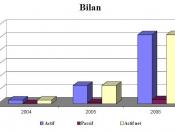1. Materiality is one of the most controversial topics in accounting due to its subjective nature. Auditors must gather data and decide whether the adjustments in question would have a material affect on a financial statement. A large number of inaccurate transactions that are determined immaterial could easily add up and over time, create significant misstatements, so the aggregate effect must be taken into consideration. Audits should be completed as early as possible, so management cannot use time constraint as an excuse to forego making the adjustments. In regards to the North Face case, Deloitte used a dollar amount threshold of $800,000 as a guideline to assess materiality. The level of materiality should be compared to the size of the business, effect on the particular transaction cycle, and overall affect on the net profit. Even though the amount of the adjustment was seen as immaterial for a firm the size of North Face, the aggregate trade credits recognized as sales were large enough to swing the firm from a net loss to a small net profit.
Management will always be reluctant to make adjustments that are immaterial and those that will negatively affect the bottom line because they are often compensated depending on performance. The auditing partner must be ethical and resist pressure from biased executives who will attempt to justify their accounting method to resist some adjustments. Fixing small errors will prevent futures problems, and it also allows future audits to be performed more efficiently. The auditor should persuade executives to willingly comply with adjustments by informing them of their legal liabilities, and their fiduciary duty to users of the statements. The auditing firm has the same liabilities and responsibilities to practice with integrity that affects the overall reputation of the firm and the profession.
2. The materiality...


